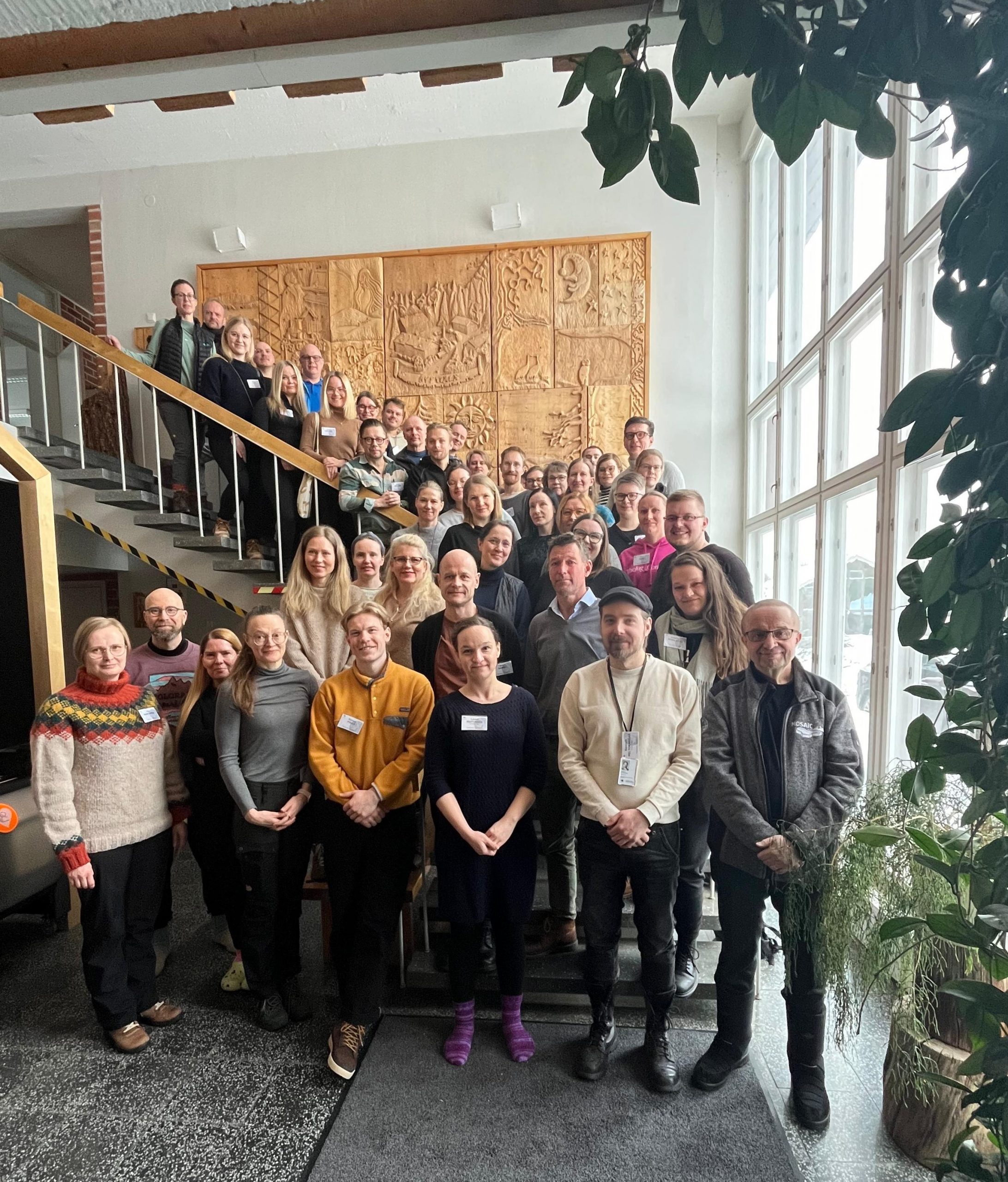
Climate University Action Groups are meeting on April 8th 2024, attached to the Atmosphere and Climate Competence Center Impact Week in Sofia Cultural Center in Vuosaari, Helsinki. Hybrid participation will be available for registered participants.
Programme:
9.45 ACCC Impact Week opening words
10.00 Climate and Death – session opening (workshop continues until 16)
10.45 Coffee break
11.00 Climate University Action Groups 1-6 (6 meeting rooms)
12.00 Lunch
13.00 Climate University Action Groups 1-6 (6 meeting rooms)
14.00 Climate University workshop summary
15.00 Coffee break
15.15-16 Possibility to continue
Register here: https://elomake.helsinki.fi/lomakkeet/128082/lomake.html
All Climate University Action Groups met for the first time in November 6th in Helsinki. Please find here short summaries of what was discussed there, as well as topics to work on in the April 8th meeting. Meetings are open for anyone to participate.
Action Group 1: Coordination
Action Group 1 discussed the network development in general. Resourcing was identified as one of the main topics and a continuous challenge. Membership fee was discussed as an option. Also, more shared distribution of power within the network was found important and circulating chairmanship was discussed as an option.
Topics to discuss:
- evaluation of CU action group model
- description of chairman’s role
- wishes for Annual meeting in November in Oulu
- agenda for next CU coordinator meeting
Chairs: Laura Riuttanen, Iida Pullinen
Action Group 2: Courses
Action Group 2 discussed quite a lot developing the pedagogies of CU courses and the process of making a new CU course. As the network has grown these issues were not clear. There was a suggestion of starting to make some kind of guidelines for quality and for pedagogical help. After the meeting, a questionnaire was prepared for CU course teachers to assess the updating needs of courses. Answers are requested by the end of March and the needs will be discussed in the meeting 8th April.
Topics to discuss:
- update needs and updating the courses during summer 2024
- concrete steps on improving the cooperation between scientists and pedagogical experts
- clarifying what is the relation of CU courses to other courses in e.g. Biodiversity education network, Sustainability education network, UniPID, FITECH, etc.
Chairs: Eveliina Asikainen, Jussi Malila
Action Group 3: Communication
Action Group 3 aims to support and implement Climate University actions through effective, appropriate, and fluent communications. In the previous meeting the Communications –group shared thoughts and ideas related to target groups (students and members), the role of CU-members, different forms of communication, and the resources. The group also discussed the outreach possibilities, such as events, web page updates, social media, and materials.
Topics to discuss:
- We will get to know each other by familiarizing ourselves with the current roles of participants and sharing the latest CU greetings of participants´ universities.
- We will discuss the key points mapped in the previous meeting.
- Understanding the roles of each partner university, finding the feasible resources within the network and discussing how to engage further the comms people, faculty and staff at member universities.
- The key areas of CU communications (website, blog, course advertisements, visual material) will be discussed in a welcoming and lively atmosphere.
Chairs: Meri Löyttyniemi, Janina Taurinen
Action Group 4: Societal collaboration
Action Group 4 spoke of potential collaboration partners for CU and listed such as those in working-life and teachers and teaching planners as potential groups to which CU courses could be targeted to expand, with cities, municipalities and other networks also mentioned. However, much of the talk revolved around questions related to the CU network’s and its participants’ needs and wishes for any potential societal collaboration. Such questions as, what kind of needs but also whose and how to collect and represent them at the Action Group were brought up.
Topics to discuss:
- Any and all topics related to the theme proposed by the onsite and online participants
- Continue our talk to define what would the societal collaboration potentially be about
- Continue our talk on how to best serve not the CU network alone but the educational institutions as participants of the network, in our efforts towards societal collaboration
- Plans for next concrete steps by the Action Group and of the division of work and responsibilities
- A presentation about the ongoing Specialisation Programme in Climate Expertise organised by UH and partnering CU universities
Chairs: Sanni Väisänen, Janne Salovaara
Action group 5: Academic collaboration
Action Group 5 main discussion was related to the definition of the function and purpose of the action group. It was discussed whether the action group should serve as a platform for multidisciplinary and transdisciplinary academic collaboration or as a “point-of connection” for discussion between CU coordinators for information sharing. In addition, the relation of Action Group 5 to Action Groups 2, 4, and 6 was discussed. As a result, it was decided that the first action should be identifying the needs and interests of CU partners and other Action Groups in relation to the Action Group 5.
Topics to discuss:
- Updating the Action Group member status and identifying the need and added value for the Action Group 5
- How to identify the needs and interests of CU partners for academic collaboration? What type of concrete collaboration CU partners are looking for and what is the level of interest?
- What kind of information provided by Action Group 5 is helpful for the CU network?
Chairs: Tilly Andersson, Mikael Puurtinen
Action Group 6: International collaboration
Action Group 6 explored possible goals at different scales, from co-developing or co-teaching courses with international partners to realising our responsibility towards the Global South and exporting education. Several CU network members already have ongoing international collaborations or are part of pilot projects. We identified several challenges, such as a lack of platforms for joint course development and teaching, providing free access to courses, accreditation and certification for students outside Finland or the EU, and finding resources and funding for internationalisation. We agreed that we would need to work towards a strategic vision for international collaboration by first stocktaking different scales of activities and identifying opportunities for new ways of collaboration and then prioritising certain types of collaboration. Regarding the development of international teaching, we decided to examine how the CU platform could be made accessible for use outside Finland, explore a possible collaboration with the University of the Arctic on a new course related to arctic issues, and how to pilot the CU approach in the Global South.
Topics to discuss:
- Action group members share updates on projects, problems and possible solutions.
- We agree on the strategic vision for international collaboration.
- We discuss specific international joint projects within the CU network (for example: Climate University for Virtual Exchanges).
Chairs: Bernhard Reischl, Anne-Marie Tuomala




